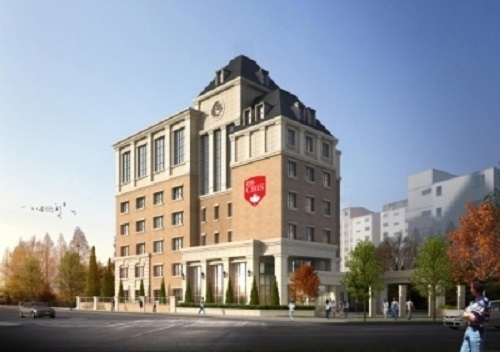Foreigners teaching subjects other than English on E-2 visas may face eviction from South Korea, as the immigration office is cracking down on visa violations in English-only alternative schools.
Fourteen Canadian teachers at the Canadian British Columbia International School in eastern Seoul were the first to receive departure orders in April, after the authorities concluded the teachers should have obtained the E-7 visa, not E-2, to work as school teachers. The decision led to the shutdown of the institution, which had 160 students.
The CBIS, certified by Canada’s British Columbia, had run the same curriculum as public schools in the Canadian province. Students were to receive a diploma accredited by the province to enter other schools or universities in Canada. However, it was authorized as a hagwon, or private academy, not school, by the Korean education office.
There are a total of 11 such alternative schools certified by other Canadian provinces and jurisdictions in the United States.
 |
An image of Canadian British Columbia International School (Herald DB) |
The Korea Immigration Service, when contacted by The Korea Herald, declined to confirm or deny a further crackdown on E-2 visa holders at such institutions.
“We’re still in discussion of the matter,” an official said, adding the office will hold a meeting Monday to finalize its stance.
Meanwhile, CBIS teachers cried foul.
“When we desperately and very emotionally asked for help (for advice to understand the legal system here), we were given silence,” Margaret Hwu, who taught grade six at the CBIS, told local news outlets of Canada after being ordered to leave South Korea within 30 days, despite holding a government-endorsed E-2 visa.
“And we actually didn’t get all our money (due to the abrupt order),” Hwu added.
Another teacher argued that E-2 visa holders teaching subjects like math in English is a common practice at regular English academies.
“All teachers do that even at hagwons. We teach students not only English but math and science. That’s what we do to teach a foreign language,” the teacher recently deported to the United States said in a YouTube video. She taught English literature and composition to grades 9, 10 and 12, in addition to AP English.
The CBIS was not able to sponsor E-7 visas for its teachers, she insisted.
“Under hagwon licenses, you are not allowed to be issued with anything but E-2 visas. That’s what they have been doing for the past five years at the school, and now they say we should be deported,” she added.
As of April 30, 15,189 foreigners were working as language instructors under E-2 visas, according to the immigration watchdog. It is unclear how many of them are at risk for deportation for unauthorized teaching.
Some critics say the target of the crackdown is not individual E-2 visa holders, but the private educational institutions.
With relatively expensive tuition fees of between 12 million won ($10,500) and 16 million won a year, elite private institutions have become a favored choice among parents not satisfied with the country’s education program at regular schools.
President Moon Jae-in, who took office in May, also has vowed to get rid of elite private high schools, emphasizing “equal opportunity” and the negative impact such institutions have on the nation‘s current competition-driven education system.
“The problem is under the current education system, students who excel in a foreign language or have studied abroad at an early age have few options to choose schools of their best interest,” Lim Sung-ho, CEO of Jongro Haneul Education, told The Korea Herald, pointing to a lack of options for high-performing students.
“The new administration could face backlash from parents by blocking the English alternative schools without offering other options,” Lim added.
By Bak Se-hwan (
sh@heraldcorp.com)







![[Today’s K-pop] Blackpink’s Jennie, Lisa invited to Coachella as solo acts](http://res.heraldm.com/phpwas/restmb_idxmake.php?idx=644&simg=/content/image/2024/11/21/20241121050099_0.jpg)
